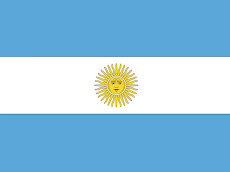Classes are supposed to start today, but no one I know has attended a class that actually began. I’m not sure when classes are offered, where their offered, or where I can find an updated schedule. While I wait, here is a blog entry about homosexuality and gender issues in Tanzania.
There’s a ten year-old boy at the orphanage who loves to braid my hair. He dresses up younger kids in scarves and I’ve seen him try on high heels. When I wear a new dress, he tells me how pretty it is. The other kids don’t tease him about his love for beauty. The caretakers don’t admonish him for being too feminine.
Similarly, men walk down the street holding hands. No one teases or questions. For the most part, homosexuality is so taboo, so unexpected, that people don’t acknowledge its existence. In this deeply religious country, two men holding hands are just friends. European and American friends of mine with same sex partners don’t talk about their sexuality in public. Luckily, the Kiswahili language makes this easy. Kiswahili pronouns are gender neutral. Yeye means “he” or “she.” Mchumba means “fiancée,” Mpenzi means “lover.” You can have a long conversation about someone with specifying their gender. People just assume it’s the opposite.
Despite its gender neutral language, Tanzania is still a very gender segregated country. I talked to some members of the “Gender Club” last week and picked up their pamphlets. Rather than promoting women’s rights or feminism, they promote “gender mainstreaming”—recruiting female students and making campus more tolerant to women. I’m happy that such a group exists, that the Faculty of Arts and Social Sciences is almost half female, and that university outreaches specifically to women. But I wish women didn’t feel vulnerable to sexual advances or attack walking across campus alone and that more families encouraged girls to succeed academically. I’ve found that in most interactions with men, women take a subordinate role. Men make decisions and initiate contact; a woman asking a man on a date is unthinkable. For the most part, Tanzanian men and women cannot be friends. If a man and a woman walk together in public, people assume they’re dating. Although men hold hands frequently, other than shaking hands as greetings men and women don’t touch in public.
My relatively light skin complicates matters for me. Men have told my friends that white skin is blessed; kids have told me my skin is beautiful. People want to date Mzungus both for the potential income and the status of being with a lighter skinned person. Tanzanian men have told me they like being seen with me in public because people will assume we’re dating. There aren’t the same boundaries as in the US. I’ve had strangers call me their “Mchumba,” or “Mrembo” (beautiful), an economics professor give me his business card, and many men ask for my phone number. I smile, say I don’t have a phone or pretend that I don’t understand or that I have a husband. The remnants of traditional gender hierarchy and neo-colonialism reveal themselves constantly in the view of women as commodities and the glorification of light skin in a black country.
As much as I love Tanzania, it’s a difficult place to be queer, questioning, or a woman who wants to be anything other than a housewife.






No comments:
Post a Comment